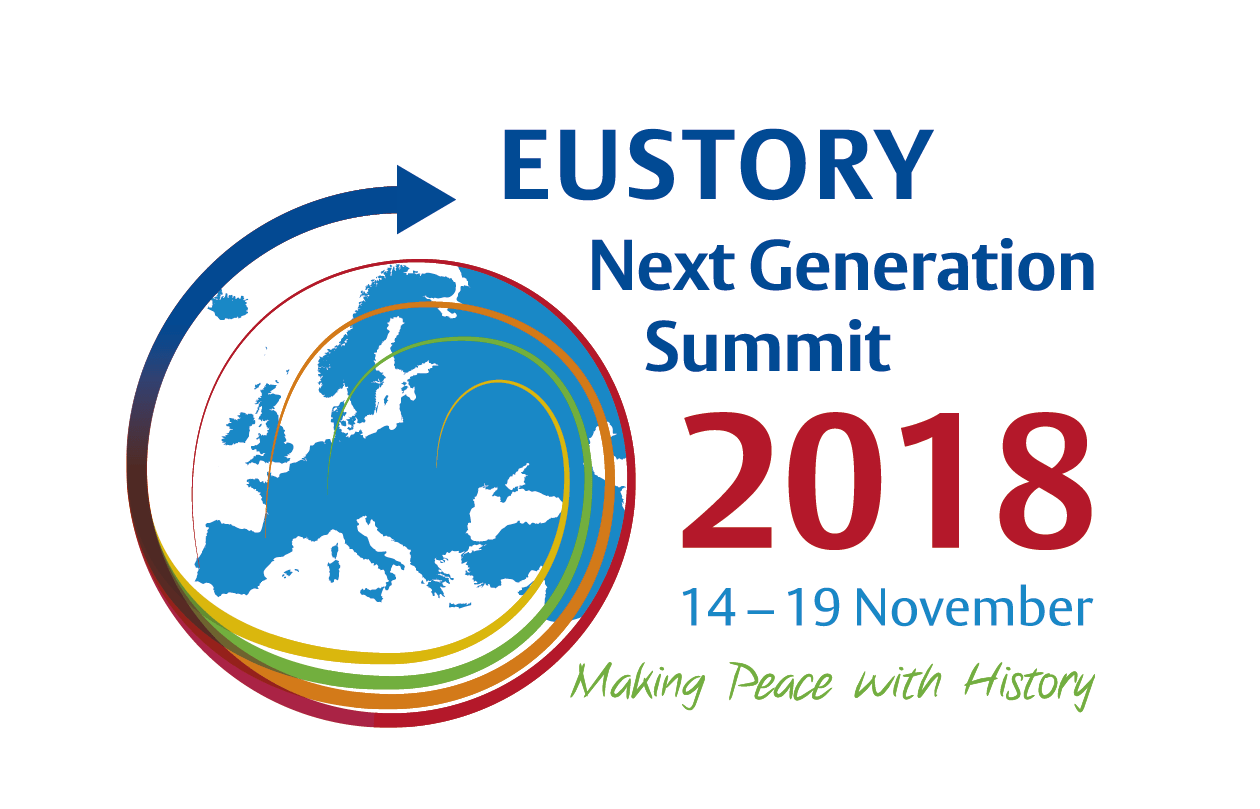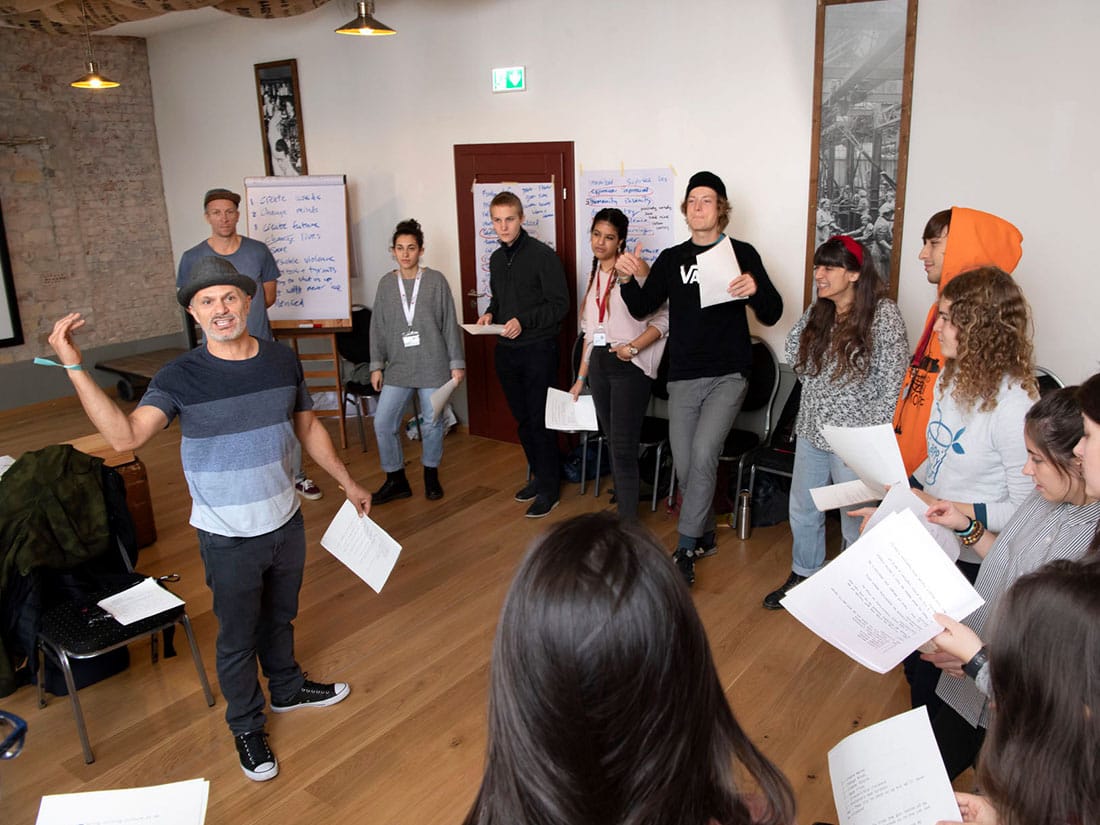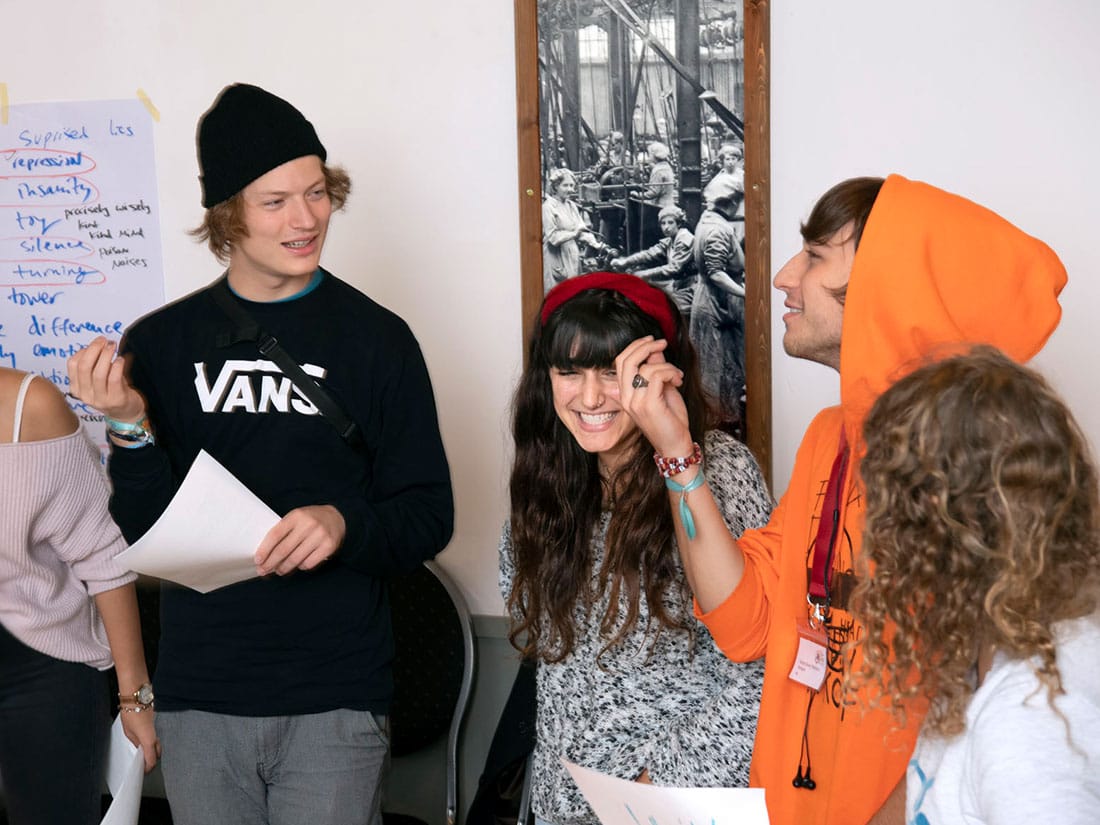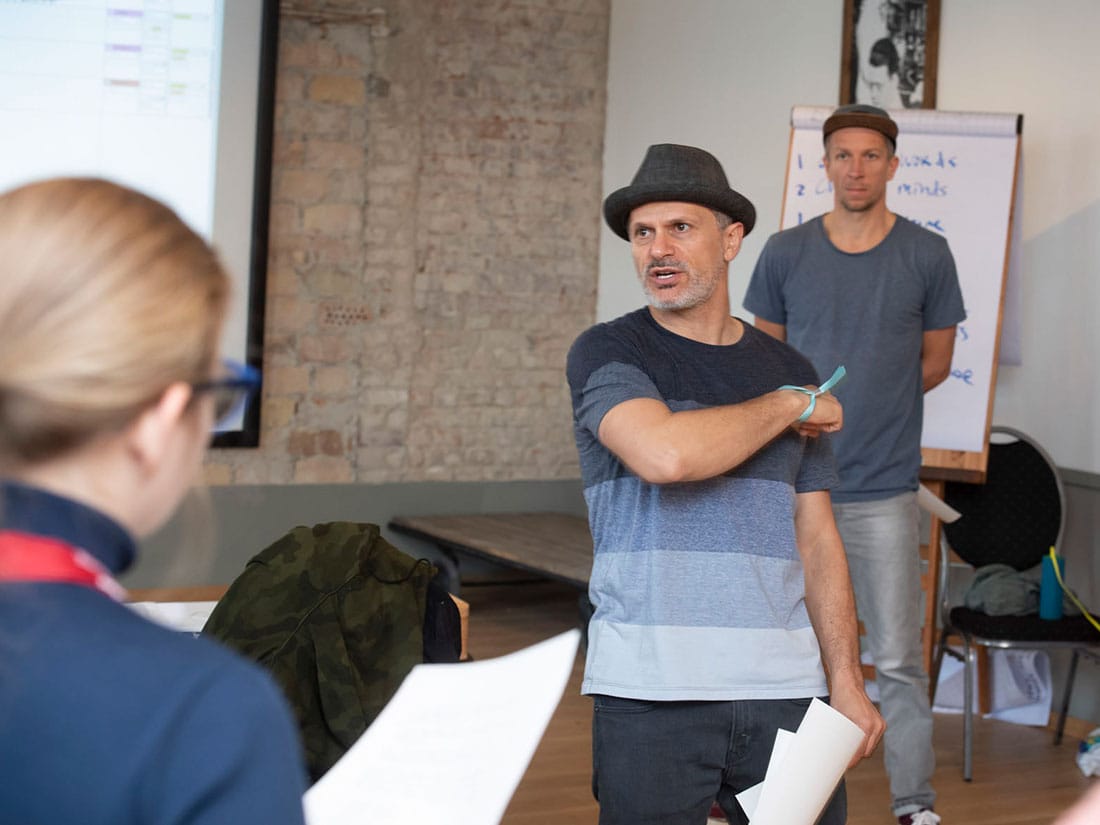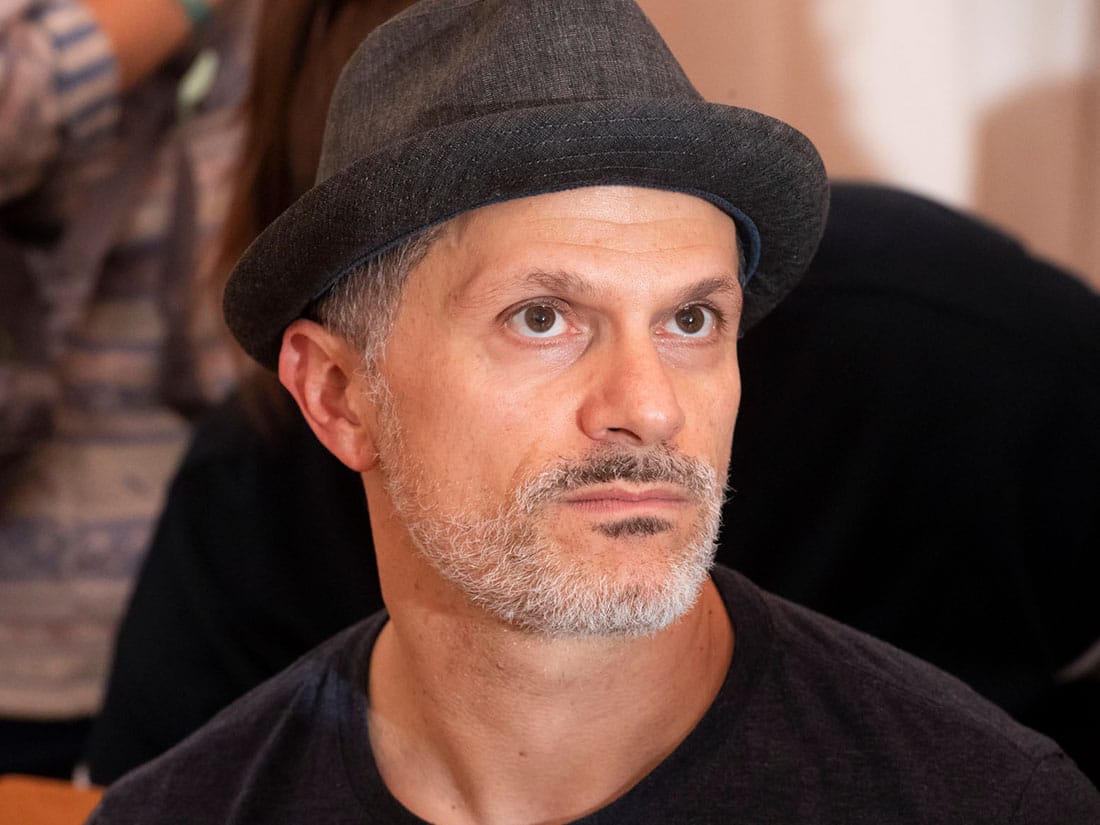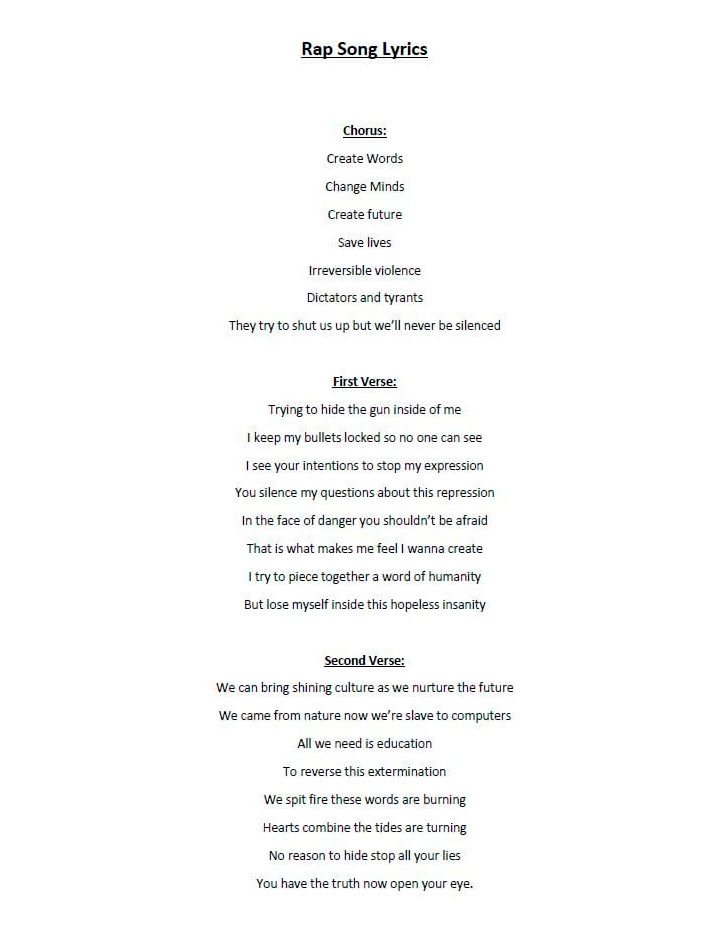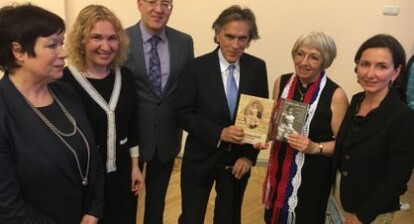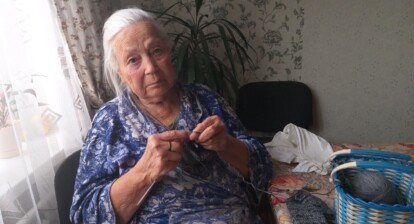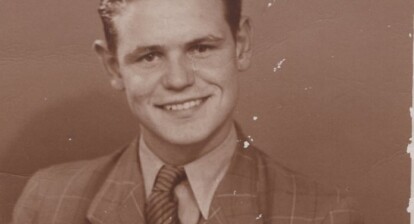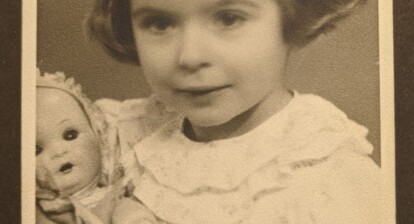With each passing day, we have less and less of a connection to what came before us. History needs to be re-narrated consistently if we want to save it from oblivion. The legacy of perpetrators in history is an issue that requires particular attention and responsibility from all of us. How can we use creative expression as a means to reconnect with history?
This EUSTORY Summit 2018 workshop made use of the methodology »New Forms of Remembrance«, a practice using provocative, charged locations to inspire the work, find new creative ways of commemoration in order to give the next generation a chance to understand history and their place in it. The participants visited the house of the Wannsee Conference, where on 20 January 1942, fifteen high-ranking Nazi officials met to discuss their plan to deport and murder European Jews.
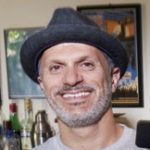
Dan Wolf
Actor, rapper, playwright,
educator, artistic director
of Sound in the Silence
Berkeley, California, USA
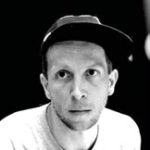
Dennis Stoecker
DJ and film director
Hamburg, Germany
Photos: © Körber-Stiftung/David Ausserhofer
This was the starting point to dive into questions of guilt and the legacies of perpetrators: Are only those guilty who wield the guns? How responsible are the perpetrators of the pen? Where in the participants countries do these questions arise? Through a series of writing and performance exercises, the participants tried to expose their emotions and express the complex nature of guilt, responsibility, war and peace, resistance, reconciliation and remembrance to create short performances that use the spoken word as a tool for giving space to individual remembrance.
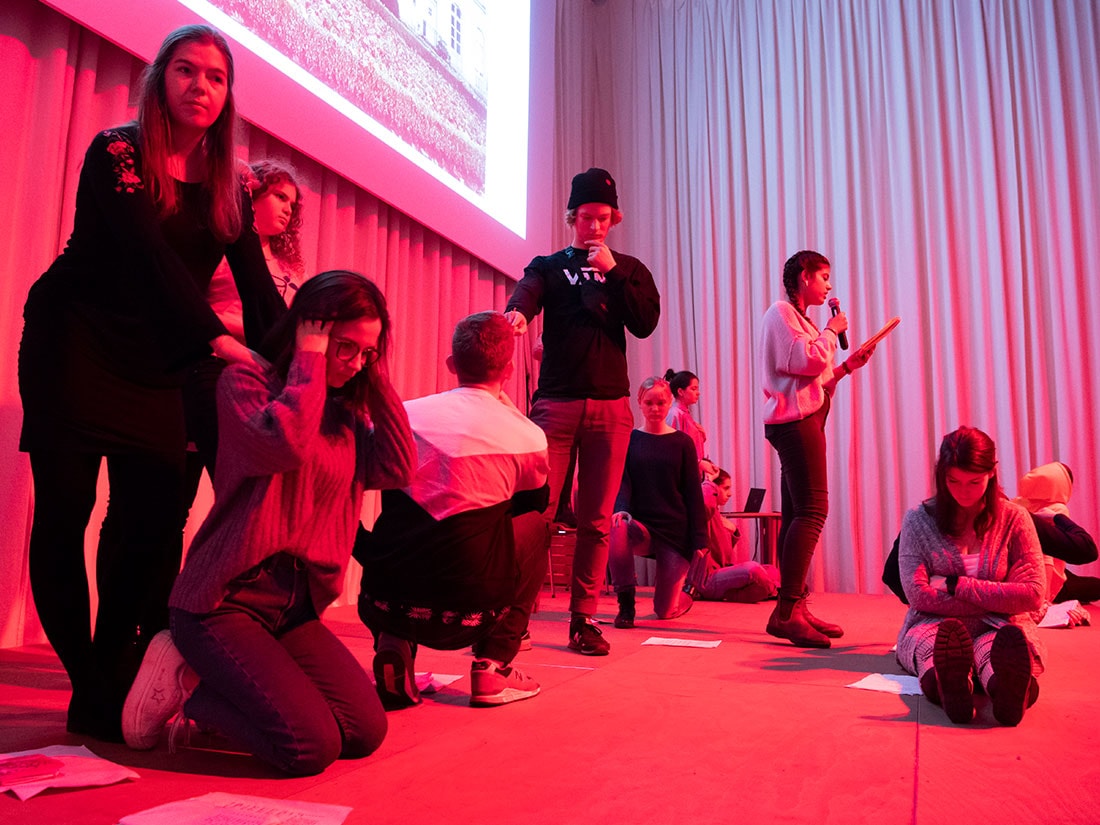
During the closing ceremony the workshop group presented these creative short performances including a rap song they had written over the past days.

